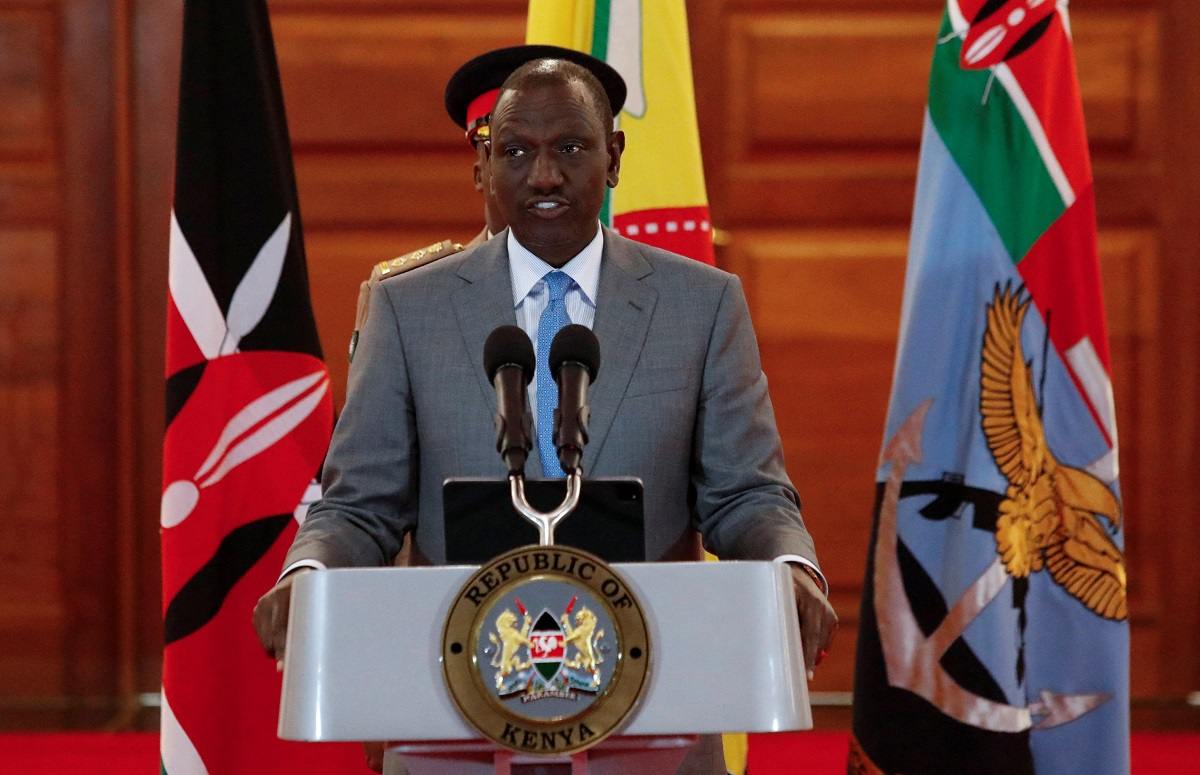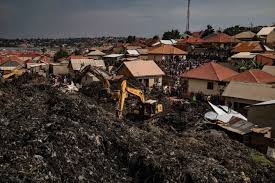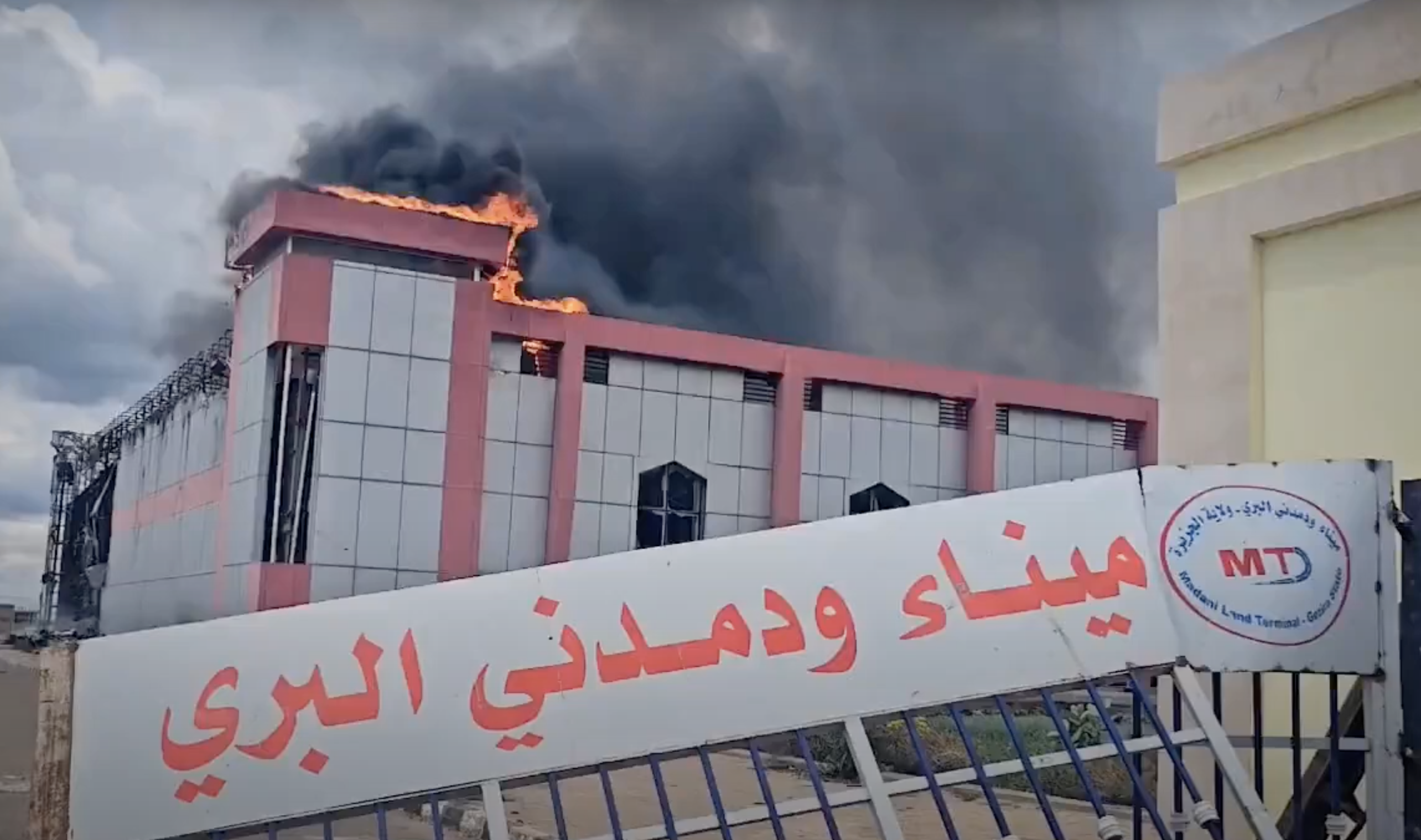Kenya: revised eco-levy tax to be reviewed in parliament
Kenya will soon present a revised eco-levy tax in Parliament. Treasury Secretary John Mbadi announced that “about 49 measures” are under consideration as part of the tax amendment bill. The new eco-levy aims to address pollution and waste management at both the office and household levels, but will exclude sanitary towels—a change from the initial proposal. Companies will still face scrutiny, including a 10 percent levy on locally manufactured plastics, despite opposition from Coca-Cola. Mbadi defended the tax, emphasizing that environmental harm should be compensated. The government is also extending the tax amnesty period by six months. This revision follows the cancellation of Kenya’s Finance Bill 2024 in June due to protests, which led President William Ruto to explore alternative revenue sources. Opposition leaders are now urging the Judiciary to resist any attempt to reintroduce the rejected bill.
A ransom is demanded for 20 students kidnapped in Benue State, Nigeria
In Nigeria’s Benue State, a ransom has been demanded for 20 medical students kidnapped on April 15. Adeniran Adebanjo, spokesperson for the Student Union Government (SUG) at Jos University’s Faculty of Health Sciences, revealed that the armed kidnappers have reached out to the families of the abducted students. The kidnappers are demanding 50 million Naira (around 30 thousand USD) for the students’ release. The students were abducted in the Otukpo area of Benue State. Benue State Police spokesperson Catherine Anene confirmed that efforts are underway to rescue the kidnapped students. The armed assailants targeted a bus carrying medical students traveling from Benue State to Enugu State on April 15, resulting in the kidnapping. Despite the death penalty for kidnapping in Nigeria, ransom abductions remain common. Armed groups frequently target northern villages, schools, and travelers to demand ransoms.
15 rescued, 7 missing after yacht sinks off Italian coast
Seven people went missing after a yacht sank on Monday due to a storm 20 kilometers east of Palermo in southern Italy, while 15 others were rescued, according to media reports. The incident took place around 5 a.m. local time (0300GMT) when the 56-meters-long (184 feet) boat sank due to heavy rains and stormy weather off the coast of Porticello, 20 kilometers (over 12.4 miles) east of Palermo, media outlets reported. Coastguards and the fire department have rescued 15 people, and a search for the remaining seven is underway, the Italian fire department said in a statement. The British-flagged boat sank to a depth of 49 meters (nearly 161 feet), and a helicopter is also assisting with the operations, it said. The people on the yacht were from the UK, New Zealand, Sri Lanka, France, Ireland, US and Canada. A one-year-old child was among those rescued and taken to a children’s hospital in Palermo for medical care.
Sudan grapples with cholera as conflict rages on
Cholera outbreak in Sudan claims 22 lives as conflict and floods worsen conditions.
Dagalo accuses Sudan’s military of neglecting national interests
Dagalo highlighted that the ongoing conflict in Sudan was largely triggered by the Islamic Movement and its leaders within the armed forces
South Sudan defies court, imposes mandatory cargo sealing
The new rule requires all cargo entering or leaving the country to be tagged with a special seal provided by the government, impacting businesses in Kenya, Uganda, and Tanzania.
Yemen floods force over 12,000 families to evacuate in Marib
98 Yemenis killed, 600 injured in floods this year, according to UN Office for Coordination of Humanitarian Affairs
Burhan sends delegation to Cairo to meet US and Egyptian mediators
The war has caused a catastrophic humanitarian crisis, with half of Sudan’s 50 million people now facing food insecurity
At least 10 killed in Malawi market car rampage
The driver lost control of the vehicle before ramming into the crowded market, causing widespread panic and devastation.
Malians endure economic struggles after four years of military rule
Four years since the military takeover ousted Mali’s president, economic hardships are deepening, and recurring power outages are crippling businesses, residents report. The August 2020 coup in the conflict-ridden West African country was fueled by widespread frustration with corrupt leaders backed by former colonial ruler France, a growing jihadist insurgency, and economic woes. However, for many, the anticipated improvements remain elusive. “The handling of the electricity situation is concerning. Many Malians are incurring significant losses,” Oumar Diarra, a furniture maker, told media. “The government needs to take action because our suffering is immense.” Mali’s 2020 coup sparked a wave of similar takeovers across the Sahel, including in neighboring Burkina Faso and Niger, all of whom are battling jihadist groups affiliated with al-Qaeda and the Islamic State. Following a second coup in 2021, Mali’s military leaders delayed their promised elections, postponing them indefinitely for technical reasons. Silversmith Allasana Ag Agaly expressed concern over the far-reaching effects of the power cuts: “When the head of the family returns home after a day without work, it impacts everyone—children, women, and daily life.” The World Bank forecasts Mali’s economic growth to slow to 3.1% this year, down from 3.5% in 2023, with extreme poverty rates rising. Around 90% of Mali’s population now lives in poverty. In addition to ousting French and U.N. troops that had been combating Islamist militants for a decade, Mali’s leaders, like their counterparts in Niger and Burkina Faso, have sought military aid from Russia instead. While many residents endure hardship, some remain optimistic, viewing it as the cost of reclaiming independence from France. “Political independence is meaningless without economic independence,” said Bamako resident Alkady Haidara. “Malians must be patient. Difficult times are part of the journey to a brighter future.”
Mansa Musa: The wealthy emperor who put Mali on the map
Mansa Musa was a king whose wealth remains unmatched in history
RSF holds key peace talks with AU, Saudi Arabia in Geneva
The RSF delegation expressed deep gratitude for ongoing regional and international efforts aimed at restoring peace in Sudan
Sahel: Africa’s semi-arid lifeline faces growing challenges
The Sahel faces significant challenges but also holds great potential
Burkina Faso conscripts magistrates for acting against junta, unions say
The unions circulated their statement to journalists on Friday, raising concerns about the junta’s treatment of legal professionals
Uganda returns Congolese police officers who fled violence
The officers, along with their weapons, ammunition, and other arms, were officially handed back to the Democratic Republic of Congo
Sexual violence used as weapon in Sudan conflict
Sudanese women have frequently been displaced and face various dangers during their journeys
EU urged to issue travel warnings as mpox risk in Africa grows
European health authorities have recommended that EU countries issue travel warnings for regions affected by mpox following its designation as a global emergency by the World Health Organization (WHO). On Friday, the European Centre for Disease Prevention and Control (ECDC) cautioned that Europe may see more imported cases due to the virus’s spread in several African nations. However, the ECDC noted that the risk of ongoing transmission within Europe remains low, as long as imported cases are quickly identified and controlled. This advisory comes after Sweden detected a new mpox variant, marking the first case of this strain outside Africa. Bruno Ciancio, ECDC’s head of surveillance, expressed concern over the worsening situation in Africa, especially in the Democratic Republic of the Congo (DRC) and neighboring countries, where case numbers may be underreported. To curb the spread in Europe, the ECDC stressed the importance of rapid case identification and containment. They have advised EU and European Economic Area (EEA) countries to issue travel advisories for regions impacted by mpox. Since last year, mpox has spread in the DRC and other African countries, resulting in over 500 deaths, primarily in the DRC. The WHO’s global emergency declaration underscores the need for coordinated international efforts to address the crisis. The ECDC highlighted that EU/EEA travelers with close contact to affected communities face a higher risk, while close contacts of imported cases in Europe have a moderate risk. There are two subtypes of the mpox virus: Clade I, more severe and endemic to central Africa, and Clade II, responsible for the 2022 global outbreak. Currently, several African countries are dealing with Clade I and a new strain, Clade Ib. Sweden’s report of the first European case of Clade Ib has led the ECDC to increase the risk level for EU/EEA travelers and the general population. Although the impact in Europe is expected to be low, the ECDC recommends high preparedness, including effective surveillance, testing, and contact tracing. Travelers to mpox-affected areas are advised to consider vaccination, and European clinicians are urged to remain vigilant for potential cases, despite mpox not being endemic to Europe. Ciancio emphasized that while the risk should be taken seriously, it should not be overstated, given the availability of effective and safe vaccines.
Death toll in Kampala landslide rises to 34
In Uganda, the death toll from the landfill collapse in Kampala has risen to 34, with many homes and residents in the Kiteezi neighborhood buried under a massive pile of waste following heavy rains. The landslide occurred on Saturday, August 9, and rescue operations are ongoing, with 35 people still missing. The collapse is thought to have been triggered by the intense rainfall. The Kiteezi landfill, situated on a steep slope in a poor part of the city, has long been a hazardous area. Women and children often scavenge plastic waste there for income, and some homes are built nearby. Kampala authorities have been considering closing the landfill and moving waste disposal to a larger site outside the city, but the plan has not been implemented since 2016. President Yoweri Museveni has ordered an investigation into the incident.
Mpox crisis escalates in Goma with rising cases and new variant
Goma, long plagued by conflict in the Democratic Republic of the Congo, is now at the center of a severe mpox outbreak, formerly known as monkeypox. The Nyiragongo General Hospital, located on the outskirts of Goma, is seeing a surge in mpox cases. The current variant is particularly concerning, with increased severity compared to earlier strains. Patient Nyota Mukobelwa recounted her experience after being transported to the hospital by a Doctors Without Borders vehicle. She initially experienced headaches, fever, muscle pain, and groin discomfort, which were followed by lesions, leading her to suspect an infection. Doctors and nurses report that most patients are children. Dr. Pierre Olivier Ngadjole from MEDAIR DRC, which operates the mpox treatment site, noted that 75% of the patients are children under ten, with 70% coming from internally displaced persons (IDP) camps. Nurse Trésor Basubi expressed concern over the rising number of admissions. The ongoing conflict around Goma has led to an influx of displaced people seeking refuge in the city’s camps. In 2022, mpox outbreaks were reported in over 70 countries, prompting the World Health Organization to declare a global emergency. While vaccines and treatments helped control the outbreaks in wealthy nations, access remained limited in Africa. This year, a new, potentially more infectious form of mpox has been identified in a mining town about 270 kilometers south of Goma. At least 13 African countries, including Burundi, Kenya, Rwanda, and Uganda, have reported new cases, often linked to the outbreak in Congo. Furaha Elisabeth visited the clinic for her child’s treatment, expressing her fear and anxiety after seeing distressing images of the disease. “I am scared and so worried,” she said.
SADC leaders gather in Zimbabwe for economic summit
President Mnangagwa assumes the SADC chair as leaders meet in Harare to discuss strategies for boosting economic growth and addressing regional security concerns.
Vital trade route collapses as Burhan’s SAF strikes Sudanese port
The Rapid Support Forces blame Burhan-controlled SAF for destroying the crucial Wad Madani land port in a devastating airstrike, worsening the humanitarian crisis.
Uganda hands over fleeing Congolese police to DRC
Uganda has repatriated nearly 100 Congolese police officers who fled across the border to escape clashes between the M23 rebel group and the Congolese army.
US pushes Burhan-controlled SAF to join truce negotiations
The U.S. has urged Sudan’s military to join peace talks as the conflict escalates and a worsening humanitarian crisis grips the country.
Gunmen abduct over 20 medical students in Nigeria
At least 20 university medical students were kidnapped by gunmen in Nigeria’s north-central Benue State on Thursday evening, police confirmed on Friday. The students, traveling on two buses, were ambushed while en route to a religious event in the state, according to police spokesperson Catherine Anene. The incident occurred near Otukpo, a town in Benue State. Anene stated that the police are currently investigating the matter and have launched a search for the abducted students. The identities of the universities the students attend have not been released. The kidnapping of students has become a recurring issue in Nigeria, with armed groups targeting schools and universities for ransom. The incidents have sparked widespread outrage and calls for increased security measures to protect educational institutions. Authorities have yet to provide further details on the abduction, including the identities of the kidnappers or their motives.
RSF reiterates commitment to humanitarian aid in Sudan
The RSF has reaffirmed its commitment to facilitating humanitarian aid in Sudan while accusing Burhan-controlled SAF of obstructing relief efforts and using food as a weapon of war.
Namibia opens borders to South African poultry imports
Namibia has lifted its ban on live poultry and bird imports from South Africa following an outbreak of avian influenza.
Burhan delays Geneva Talks as SAF bombs civilians
However, SAF’s absence from the initial discussions has raised doubts about the potential for a comprehensive peace agreement
































